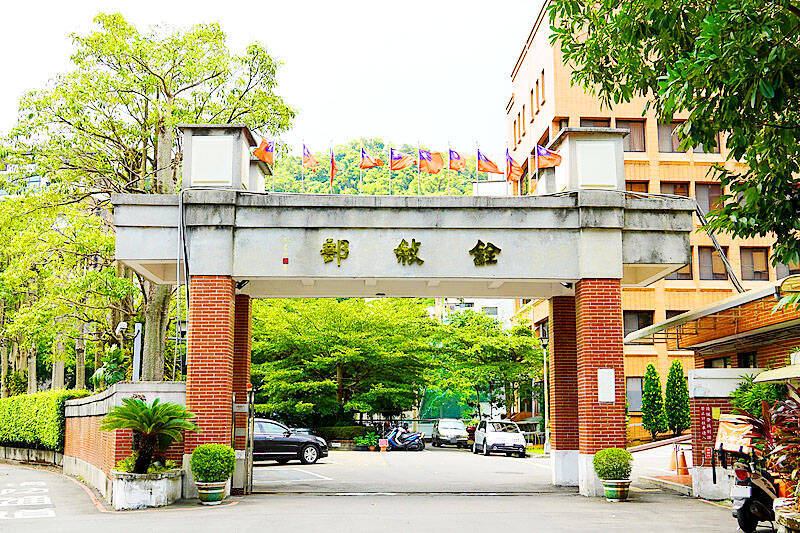Top Stories
KMT Pension Fund Proposal Risks Early Depletion, Report Warns

The proposal by the Chinese Nationalist Party (KMT) to amend pension laws could significantly jeopardize the sustainability of Taiwan’s Public Service Pension Fund. According to a report from the Ministry of Civil Service, halting pension cuts for civil servants, teachers, and military personnel could lead to the fund’s depletion occurring four to five years earlier than previously projected.
Han Kuo-yu, the Legislative Speaker, announced on August 14 that amendments to the Act Governing Civil Servants’ Retirement, Discharge and Pensions could begin post-recall and referendum. The ministry’s written report to the Legislative Yuan outlines a concerning situation where the fund is already facing severe financial strain. A 2013 actuarial assessment indicated that the fund would run out of resources by 2030.
Aiming to extend the fund’s viability until around 2051, the National Pension Reform Committee was established in 2016. Reforms instituted in 2018 included gradually lowering the maximum income replacement ratio and raising the pensionable age to 65. However, if the KMT’s proposal to halt these cuts is implemented, the fund could be exhausted by 2042, with the depletion date potentially moving as far up as 2046 for new civil servants hired after July 1, 2023.
The ministry’s report identifies three primary reasons for this accelerated depletion. First, the annual cuts to the income replacement ratio between 2018 and 2023 saved the fund approximately NT$277.4 billion (around US$9.07 billion). If these savings are lost, the fund would also require an additional NT$29.4 billion to support individual pension accounts.
Secondly, the report warns that reduced funds available for investment would lead to declining investment income. Following the 2018 reforms, the fund’s annual income-to-expenditure ratio was at a healthy 145.3 percent in 2019. By 2023, this figure had dropped to 98.6 percent, and further deterioration is expected if the reforms are reversed.
Lastly, the report highlights that stopping the annual reduction in the replacement ratio would create a financial shortfall. Should the government choose to subsidize this gap, the burden would shift to taxpayers, disproportionately impacting younger generations who would have to support retirees, undermining the goal of intergenerational fairness.
Data from a previous ministry report indicated that 70 percent of retired civil servants received an average monthly income exceeding NT$50,000, with those at higher salary grades earning between NT$60,000 and NT$80,000. Given that these benefits already surpass the average salary in the private sector, halting the planned reductions could further inflate their retirement income.
In response to the KMT’s proposal, Rosalia Wu, chief executive of the Democratic Progressive Party caucus, emphasized that protecting civil servants must also include safeguarding the rights of current and future employees in the sector. She criticized the KMT for prioritizing the interests of retired individuals at the expense of active workers and future generations. Wu warned that the proposal could jeopardize state finances and erode intergenerational justice, leaving little room for the government or legislature to negotiate.
Conversely, Lo Chih-chiang, deputy secretary-general of the KMT caucus, asserted that the party’s stance on amending the act is well-defined. He argued that the government should prioritize the welfare of civil servants and avoid exacerbating social divisions. Lo contended that reforms should respect the contributions of civil servants, teachers, and military personnel while ensuring fairness and long-term stability in the pension system.
The ongoing discussions surrounding Taiwan’s pension reform highlight the delicate balance between providing adequate support for retirees and maintaining financial sustainability for future generations. As lawmakers deliberate the KMT’s proposal, the implications of these decisions will have a lasting impact on Taiwan’s public service sector.
-

 Lifestyle3 months ago
Lifestyle3 months agoHumanism Camp Engages 250 Youths in Summer Fest 2025
-

 Sports3 months ago
Sports3 months agoDe Minaur Triumphs at Washington Open After Thrilling Comeback
-

 Business4 months ago
Business4 months agoKenvue Dismisses CEO Thibaut Mongon as Strategic Review Advances
-

 Sports4 months ago
Sports4 months agoTupou and Daugunu Join First Nations Squad for Lions Clash
-

 Top Stories4 months ago
Top Stories4 months agoColombian Senator Miguel Uribe Shows Signs of Recovery After Attack
-

 World4 months ago
World4 months agoASEAN Gears Up for Historic Joint Meeting of Foreign and Economic Ministers
-

 Business4 months ago
Business4 months agoOil Prices Surge Following New EU Sanctions on Russia
-

 Health3 months ago
Health3 months agoNew Study Challenges Assumptions About Aging and Inflammation
-

 Entertainment3 months ago
Entertainment3 months agoDetaşe-Sabah Violin Ensemble Captivates at Gabala Music Festival
-

 Entertainment3 months ago
Entertainment3 months agoBaku Metro Extends Hours for Justin Timberlake Concert
-

 Business4 months ago
Business4 months agoU.S. House Approves Stablecoin Bill, Sends to Trump for Signature
-

 Top Stories4 months ago
Top Stories4 months agoRethinking Singapore’s F&B Regulations Amid Business Closures









